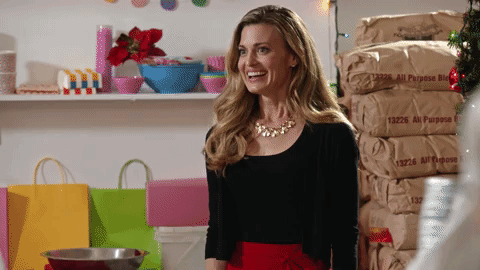I hope your holiday season has gotten off to a beautiful start. For me, the holidays are my favorite time of year. I love the lights, traditions, celebrating with family and friends, and, of course, all the new Hallmark Christmas movies! Although we all know how the movies will end, there is something so heart-warming about being invited into these charming and magically decorated small towns where families sit around the kitchen table decorating Christmas cookies, helping their one unwed daughter who has come home from the big city mend her past heartbreak, so she can open up to finding love with her old flame, who just happens to be the boy next door.
Always being a person who had a desire for my life to look like a Norman Rockwell painting, there is a part of me that has always craved Hallmark’s picture of family. Even after I got divorced, I still had an idyllic picture of what I wanted my future family to look like. I imagined myself and my partner sitting connected on the couch as our blended families excitedly rushed in and out, sharing about their day and easily interacting with us and each other.
Although I have created many magical moments with my family and hope to create many more with my fiancé and his family, the truth is that we have our fair share of family tensions and strained relationships. I, like so many of the people I work with, have stories about:
Siblings that no longer speak to each other,
Adult children who are estranged from their parents,
Ex-spouses who won’t allow themselves to be in the same room, and
Blended families who can’t stand each other.
No question, most of us have that fairy-tale desire to have or have had a “picture perfect” family. And when our reality falls short of the fantasy:
it’s human to feel shame or downright embarrassed about our set of circumstances, and
it’s natural to think that our family is somehow more screwed up than the next.
As a result, we want to hide or deny our family dysfunction. We think our resistance to what is will protect us. Yet, the opposite is actually true!
It is our denial that keeps us stuck and it is our attachment to how we think things should be that keeps us from
seeing, accepting, and even enjoying what is.
The fact is….Families are messy!
They can trigger us, hurt us to the core, ignite feelings of deep betrayal, and bring out the absolute worst version of ourselves quicker than anyone else. They serve as the catalyst to rip off our band-aids and expose the wounds and hurts that still need to be healed.
Yet, our family relationships, especially those that frustrate and anger us the most, are truly our greatest teachers. As I wrote in The Integrity Advantage,
“The people in our life are there to act as reflections - to illuminate the shadows
we need to own, the wounds we need to heal, and the outdated beliefs
we need to reveal and shift so we can be our fullest most loving selves.”
Yet, we cannot receive the gifts of these teachers if we are comparing them to the families in the Hallmark movies or even the families next door who we assume are “normal.”
It is these comparisons and our attachments to some idyllic picture of what our family should look like that is the source of our most profound pain. They distract us from receiving the lessons to be leaned since we are so busy blaming that we miss the message.
Ultimately, you may never be able to heal the rifts in your family. Chances are your family may never be the one you hoped for. However, if you can find the perfection in messy, let go of your expectations, and become present to what you are actually experiencing, a new family dynamic can emerge as well as a legacy that will touch and empower all future generations.
Transformational Action Steps
(1) Become present to the expectations you have in terms of your family. How do you think the should or should not be? What is the picture of family you are attached to?
(2) Think about how these expectations and attachments actually keep you from enjoying or learning from what is.
(3) Start unwrapping the gifts of your family exactly as it is. What have you learned or how have you grown as a result of your family dynamic?
(4) Learn to love messy. Go do something messy and see how it feels.

